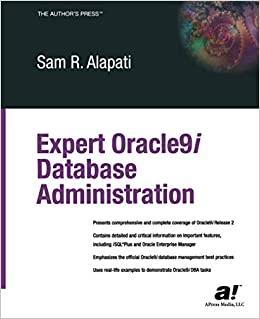Question
Mutual Exclusion Condition, Circular Wait Condition, Hold and Wait Condition, and No-Preemptive Condition We know that for deadlock to occur, the four conditions (mentioned above)
Mutual Exclusion Condition, Circular Wait Condition, Hold and Wait Condition, and No-Preemptive Condition
We know that for deadlock to occur, the four conditions (mentioned above) must be present, and therefore, to prevent deadlock we only have to prevent 1 of these conditions from occurring. a. Examining each condition separately is it possible to prevent it from happening (i.e. is each condition preventable?) b. Can implementing a prevention method cause other problems to arise? (explain) c. Why dont we simply pick the easiest to condition to stop and then do it? d. What affect can implementing deadlock prevention have on our operating system overall?
Step by Step Solution
There are 3 Steps involved in it
Step: 1

Get Instant Access to Expert-Tailored Solutions
See step-by-step solutions with expert insights and AI powered tools for academic success
Step: 2

Step: 3

Ace Your Homework with AI
Get the answers you need in no time with our AI-driven, step-by-step assistance
Get Started


